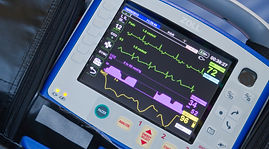

Mental Health Conditions Explained
Here is a brief overview of some common mental health issues that Onepsych Psychology Services deal with.
To download a pdf version of this page please click here
Addictions
Many clients present with substance abuse issues. Most often, alcohol is the issue followed by illicit drugs. Other substances might include caffeine, nicotine, over eating etc.
Substance abuse may be the main problem or it may be secondary to other issues for example relationship problems, depression, job stress or illness.
Often clients need to work on controlling cues for drinking, managing the urge and relapse prevention. There is often the need for self esteem counselling, effective problem solving strategies, relaxation strategies and learning effective communication.
Some people will elect to give up their addiction totally whilst others will aim to reduce their consumption to socially acceptable levels. What is realistic is really dependent on the individual case.

Adjustment Disorder
An adjustment Disorder is characterised by the development of emotional or behavioural symptoms in response to specific stressors which cause a great deal of stress in a persons life. It could be a positive event like a wedding or purchasing a new home or a negative event like a family members death, the break up of a relationship, loss of a job or ongoing medical issues.
These symptoms are clinically significant as evidenced by the following:
- Marked distress that is in excess of what would be expected from exposure to the stressor.
- Significant impairment in social, occupational or educational functioning.
Adjustment disorders are further categorised by the specific symptoms experienced ;
- Adjustment disorder with depressed mood
- Adjustment Disorder with Anxiety
- Adjustment disorder with mixed anxiety and depressed mood.
- Adjustment Disorder with Disturbance of conduct
- Adjustment disorder with mixed disturbance of emotions and conduct.
- Adjustment Disorder unspecified.

Anger
Anger is an emotion that can range from mild annoyance to intense rage. It is accompanied by biological changes in your body including increases in your heart rate and blood pressure that can cause you to shake and feel out of control.
Angry behaviours include yelling, throwing things, criticising, ignoring, storming out and sometimes withdrawing.
Anger often accompanies other feelings such as hurt, fright, disappointment, worry, embarrassment or frustration.
If your anger is creating trouble for you with your family, work, your health or the law, you may need professional advice.
Some signs that anger is a problem include:
• Anger involves verbal, emotional, physical or psychological Abuse.
• You feel angry a lot of the time.
• People close to you are worried about your anger.
• Anger is leading to problems with personal relationships and work.
• You think you have to get angry to get what you want.
• Anger seems to get bigger than the event that set it off.
• Anger lasts for a long time, well after the triggering event has passed.
• Anger effects other situations not related to the original event.
• You are becoming anxious and depressed about your anger.
• You are using alcohol or others drugs to try and control your anger.
Anger management
Anger management is about learning the triggers and early warning signs for your anger. It focuses on knowing how your body reacts as well as controlling your thinking and behaviour to reduce angry episodes.

Anxiety
Although anxiety is considered a normal reaction to stress, it can develop into a disorder when it becomes excessive.
The main features of an anxiety disorder are fears or thoughts that are constant and distressing and that interfere with daily living.
Other symptoms may include:
- Panic or anxiety attacks
- Physical reactions such as trembling, sweating, faintness, rapid heartbeat, difficulties breathing or nausea.
- Avoidance Behaviour – going to extreme lengths to avoid a situation that may bring on anxiety or panic.
Anxiety disorders include:
Generalised Anxiety Disorder – general and debilitating worry that has been present for most days over a six month period.
- Social Phobias – fear of social situations
- Specific Phobias – for example fear of open spaces (Agorophobia) or fear of closed spaces (Claustrohobia).
- Panic disorder – frequent and debilitating panic attacks.
- Obsessive compulsive Disorder
- Post Traumatic Stress Disorder
Treatment
Cognitive Behaviour therapy has proven to be effective in the treatment of anxiety.
CBT aims to change patterns of thinking, beliefs and behaviours that trigger anxiety.
Anxiety management and relaxation techniques such as meditation, breathing exercises and counselling.

Bullying
Bullying is common in the school ground and the work place.
Bullying can be verbal such as name calling, put downs, threats, teasing and sexual harassment.
Bullying can be physical; such as being punched, kicked or tripped or having your belongings stolen, or it can be social such as being left out or having rumours spread about you.
Bullying can have a serious impact on the way someone feels about themselves.
The bullied often feel that they are all alone and that there is nothing they can do to change the situation.
Ongoing bullying can lower a persons self esteem and lead to feelings of sadness, anger and confusion.
Chronic pain
Chronic pain is defined as pain which has continued for three months or longer. Chronic pain can be debilitating and have a severe effect on all aspects of a persons life. It may have its original cause in an accident, illness or through wear and tear.
Unfortunately, for some the reason for their pain goes undetected.
Chronic pain is a very personal issue.
No one can see pain and therefore it can be a lonely battle and it is likely that the sufferer will experience a range of reactions from different people.
Chronic pain can impact on your mood, appetite, sleep, exercise, relationships and motivation for everyday activities.
Treatments
Psychological therapies for pain can include hypnosis and relaxation, cognitive therapy which aims to reduce the negative thinking patterns which can accompany pain and cause depression as well a behaviour therapy which involves changing the way that things are done to avoid increased pain and depression.

Depression
Clinical depression is an emotional, physical and thinking state that is intense and long lasting and has negative effects on a persons day to day life. Approximately one in five people will experience an episode of clinical depression in their life time.
Causes
The causes of depression are often not due to one factor but are likely to be the result of inter-related factors.
These may include hereditary, biochemical changes in the brain, reactions to stressful life events and personality characteristics such as perfectionism.
Symptoms
- Loss of interest in pleasurable activities and daily routine
- Worrying and negative thinking.
- Irritability, agitation and fatigue.
- Changes in sleep pattern.
- Hopelessness
Treatment
The psychological treatment of depression provides skills and strategies to change negative thinking patterns and behaviours that contribute to depression and to lessen underlying sensitivity to future episodes of depression.

Emergency Services
Peter Nelson has twenty years experience working with members of the emergency services in Tasmania.
Issues have included stress, relationship difficulties, substance abuse, Post Traumatic Stress Disorder as well as work related injury, depression and anxiety.

Intellectual Disability
Peter Nelson has worked with intellectually disabled people for over twenty years.
Peter was initially employed at the Willow Court centre before moving to the Community Intellectual Disability Service.
He has seen individual clients in private practice for the last seventeen years and has also provided employee assistance Programs to organisations providing support for the intellectually disabled.
He is a current board member of STAR (Supported Tenancy Accommodation & Respite) Tasmania.

Self Esteem
Often people have deep seated negative beliefs about themselves which can be the basis of low self esteem.
Low self esteem can lead to fear and anxiety or depression and will often mean the individual will not strive for fear of failure.
People with low self esteem are very judgemental of themselves and this often impedes their progress in school, work or other activities.
Cognitive Behaviour therapy has proven useful to help combat negative thoughts and change anxiety provoking behaviours.
Therapy helps the individual focus on their strengths and what it is they like about themselves. It also helps the individual realise that the image they think others have of them is often their own mind reading and not based on fact.
Relationship Counselling
Often, counselling is needed to defuse conflict within a relationship.
In other situations, it is needed to address quality issues within the relationship.
In these cases there might be little communication or a reduction in the compassion shown to each other.
There may be sexual issues or differences in parenting styles.
Relationship counselling can help couples:
- Develop the relationship they want
- Understand how they contributed to the current state of their relationship
- Improve their communication.
- No referral is required

Rehabilitation
Peter Nelson has worked in rehabilitation hospitals for the last 25 years as well as seeing rehabilitation clients in private practice.
Issues have included personal injury from workplace accidents, motor vehicle accidents, stroke recovery, acquired brain injury, early dementia management and chronic disease issues such as those involved with MS or Diabetes.
Chronic pain is a major interest having run both inpatient and outpatient pain programs.
Psychological difficulties often include Depression and anxiety as well as Post Traumatic Stress disorder, substance abuse, Adjustment Disorder, self esteem issues and relationship difficulties.
Clients are often referred by their general practitioner or Rehabilitation provider and are on workers compensation or covered by the Motor Accidents Insurance Board (MAIB).

Trauma
After trauma, people may go through a wide range of normal responses.
These reactions may be experienced, not only by the people who experienced the trauma first hand, but by those who have witnessed or heard about the incident, or involved with those affected.
Many reactions can be triggered by persons, places or things associated with the trauma. Some reactions may seem totally unrelated. Previous experiences or memories of trauma may also be triggered as a result of more recent events.
Emotional Reactions
• Shock, disbelief, fear and anxiety
• Grief, disorientation, denial
• Irritability, restlessness,outbursts of anger or rage, feeling over alert or on edge.
• Emotional swings - crying then laughing
• Nightmares and flashbacks
• Feelings of helplessness and panic
• Increased need to be in control
• Minimising what happened
• Worrying or intrusive thoughts of the trauma or attempting to avoid anything associated with the trauma
• Tendency to isolate oneself
• Feelings of detachment and emotional numbing
• Difficulty concentrating or remembering
• Feelings of shame, blame or survivor guilt
• Diminished interest in everyday activities.
Physical Reactions
• Aches and pains; headaches & back aches
• Sudden sweating or heart palpitations
• Changes in sleep patterns, appetite and interest in sex.
• Constipation or diahorrea
• Easily startled by noise
• More susceptible to colds and illnesses
• Increased use of alcohol or drugs/or overeating.
Treatment
There are a wide range of treatments available for trauma sufferers and treatment will depend on the severity of the reaction to the event. Cognitive Behaviour Therapy can help to reduce ongoing negative thoughts and behaviours and this treatment can be supplemented by stress management techniques to reduce the level of physiological arousal. Often exposure therapies such as eye movement desensitisation and reprocessing (EMDR)are necessary which involve the client working through the trauma in a safe environment.
Veterans
Peter Nelson has nearly twenty years experience working with veterans from most conflicts.
Issues have included Post Traumatic Stress Disorder, major depression, Anxiety issues, substance abuse, relationship difficulties and adjustment disorder.
Referral is simply by letter from your general Practitioner.
